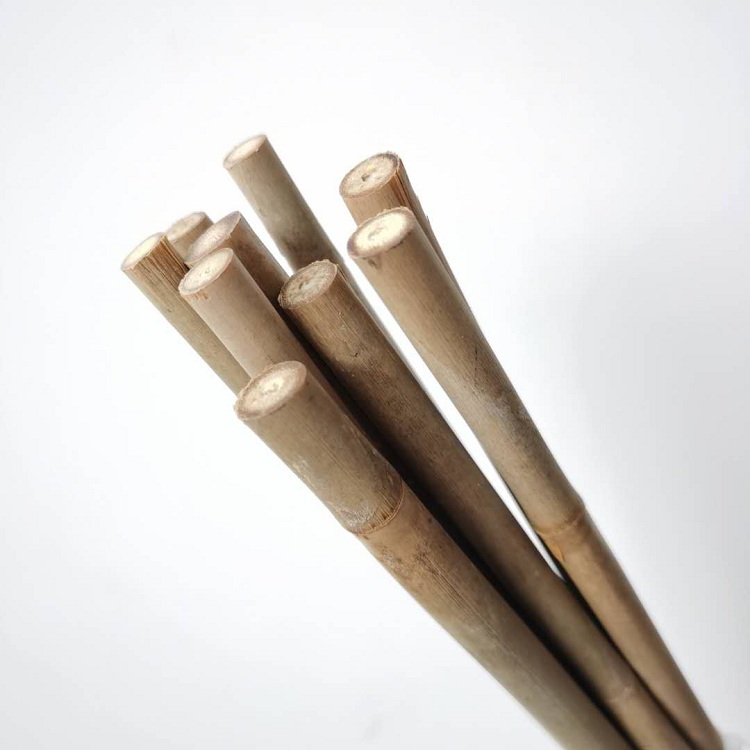Bamboo Landscape Stakes vs. Wood: Which One Lasts Longer?
When it comes to landscaping, gardening, or light construction, the humble stake plays a pivotal role. But not all stakes are created equal. If you're torn between bamboo landscape stakes and traditional wood stakes, you're not alone. This guide breaks down the key differences so that professional buyers and retail consumers alike can choose the right material for durability, sustainability, and value.

Bamboo Landscape Stakes vs. Wood Stakes: A Comprehensive Comparison
What Are Bamboo Landscape Stakes?
Bamboo stakes are made from one of the fastest-growing plants on Earth. Thanks to their high tensile strength, natural resistance to pests, and lightweight build, bamboo stakes are commonly used for:
-
Supporting young trees and vegetables
-
Marking garden rows or survey points
-
Temporary fencing and plant training systems
In landscaping and gardening circles, bamboo’s sleek, natural look also blends better with green spaces, making it both functional and aesthetic.
Wood Stakes Explained
Wood stakes—often made from pine, cedar, or redwood—have long been a standard in construction and agriculture. To extend their lifespan, these stakes are typically treated with preservatives to resist decay and insect damage. They're used for everything from staking saplings to defining property boundaries or supporting concrete forms in light construction.
While widely available and familiar, untreated wood can break down quickly, and even treated wood may splinter or warp over time.
Comparing Durability and Performance
Weather Resistance and Longevity
One of bamboo’s biggest advantages is its natural resistance to moisture and rot. In temperate or wet climates, bamboo outperforms untreated wood, which may decompose within a season. Treated wood can last longer, but it comes with environmental trade-offs.
“In coastal areas, we found bamboo stakes outlast wood by almost 2 seasons without the need for chemical treatment,” says an anonymous landscape contractor in Florida.
In a comparison trial by a landscaping firm in the Midwest, bamboo stakes retained over 80% of their strength after two growing seasons, while untreated wood stakes showed signs of cracking and fungal damage within the first year.
Strength and Load Capacity
Bamboo boasts an impressive tensile strength of up to 28,000 psi, surpassing even some types of steel. This makes it ideal for supporting climbing plants, vines, and even young fruit trees.
For heavier-duty applications—like supporting freshly transplanted saplings in high-wind zones—some treated wood stakes may outperform, especially in direct soil embedment. However, for most gardening and light landscaping uses, bamboo’s strength is more than sufficient.
Sustainability and Environmental Impact
Bamboo: The Eco-Friendly Choice
If you’re aiming to reduce your project’s carbon footprint, bamboo is the clear winner.
-
It matures in 3–5 years versus decades for trees
-
Grows without pesticides or synthetic fertilizers
-
Emits up to 35% more oxygen than an equivalent stand of trees
Additionally, many manufacturers offer FSC-certified or organically grown bamboo, further ensuring responsible sourcing.
Environmental Concerns with Wood
Traditional wood stakes, especially when chemically treated, may leach preservatives into the soil over time—posing a risk to sensitive plants or groundwater. Harvesting wood from slow-growing forests also contributes to deforestation unless sourced from responsibly managed timberlands.
"Bamboo is one of the few materials that actually restores the land it grows on,” says a representative from a sustainable agriculture nonprofit.
Cost-Effectiveness and Sourcing
Price Per Unit and Longevity ROI
On a per-unit basis, untreated wood may initially appear cheaper. However, when factoring in replacement frequency, especially in wet or pest-heavy climates, bamboo offers a superior return on investment.
For example, a 6-foot untreated pine stake might last one season at $0.80 per piece, while a similarly sized bamboo stake at $1.20 can last up to three seasons—cutting replacement costs by more than half over time.
Availability and Logistics
Bamboo landscape stakes are widely available through factory-direct sourcing, particularly from Southeast Asia, where climate and farming practices support high-yield production. Buyers benefit from:
-
Bulk order discounts
-
Flexible sizing options (3', 4', 6', etc.)
-
Custom bundles and fast turnaround times
For professional landscapers and agricultural suppliers, bamboo offers logistical consistency and scale, helping maintain steady project timelines and reduce supply-chain hiccups.
Conclusion
When comparing bamboo landscape stakes vs. wood, bamboo wins on several fronts: it’s stronger, longer-lasting, eco-friendly, and increasingly cost-effective when sourced in bulk. Whether you're managing a commercial landscaping project or tending your backyard garden, bamboo is a smart, sustainable solution.
Ready to make the switch? Order high-quality bamboo landscape stakes directly from our factory today—bulk and retail options available.

